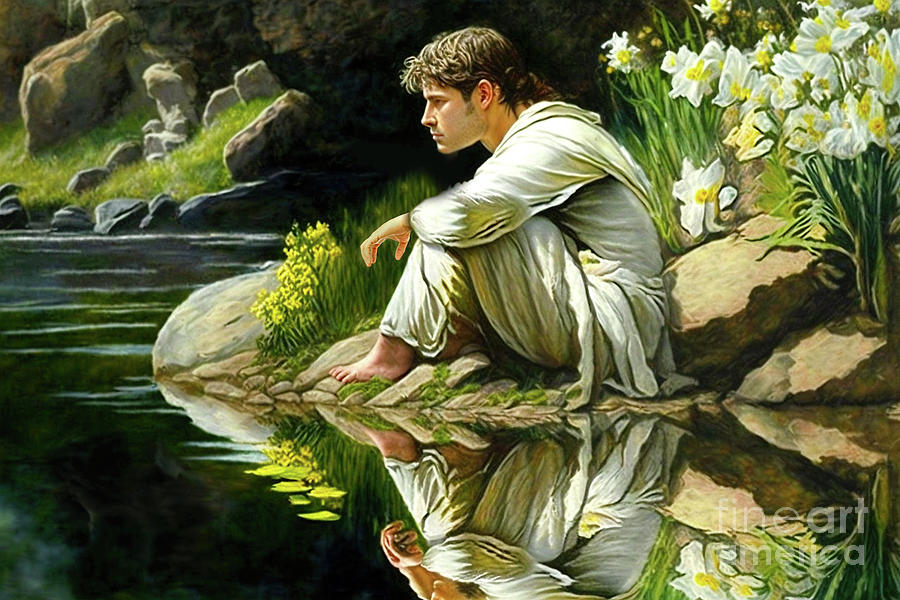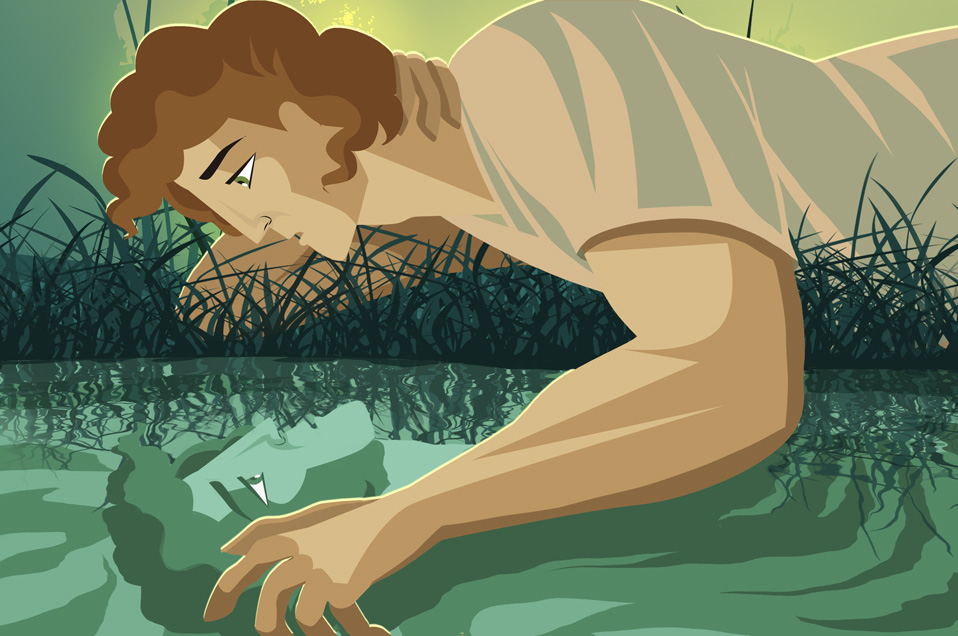Narcissus: Vanity


The story of Narcissus
Narcissus was born in ancient Greece, the son of a river god and a nymph. From the moment of his birth, it was said he would live a long life—if only he never came to know himself too well. This prophecy would shape his fate. As he grew, his beauty was unmatched. Wherever he went, people admired him, and many fell in love with him at first sight. Yet, Narcissus had little interest in others. He believed no one was good enough for him, and he cruelly dismissed every admirer.
Among those who adored him was the nymph Echo. She had once been punished by Hera, queen of the gods, so that she could only repeat the words of others. When Echo saw Narcissus, she fell deeply in love, following him through the woods, longing for him to notice her. Finally, she revealed herself, but she could only repeat his words. Confused and annoyed, Narcissus rejected her harshly. Heartbroken, Echo faded away until only her voice remained in the mountains.
The gods looked upon Narcissus and saw the pain his vanity caused. To teach him a lesson, Nemesis, the goddess of retribution, lured him to a clear, still pool of water. When Narcissus leaned down to drink, he saw an image so captivating that he could not look away. He did not realize it was his own reflection. He thought the beautiful face before him belonged to another being, someone who returned his love silently from the water’s surface.
Hour after hour, day after day, Narcissus remained by the pool, gazing endlessly at the reflection. He could not eat, sleep, or turn his attention elsewhere. He tried to reach the figure in the water, but each time he touched the surface, it rippled and disappeared. Longing consumed him, and his strength faded away. Finally, as his body gave out, the gods took pity. Where he had sat, a delicate white and gold flower bloomed—the narcissus, a symbol of vanity and self-obsession.
The story of Narcissus is more than a tale of beauty and tragedy. It reminds us that excessive self-love blinds us to the world around us. True worth is not found in the mirror, but in kindness and connection with others.
Moral: Vanity and selfishness lead to loneliness, but humility and compassion bring lasting beauty
Discussion Topics
1. Do you think Narcissus was punished too harshly, or was it a fair lesson for the way he treated others?
2. How might the story of Narcissus connect to how people today use mirrors, cameras, and social media?
Supplemental
Drama Role-Play (optional):